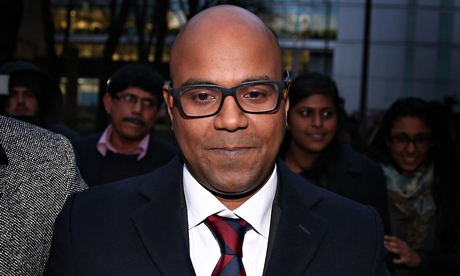
The jury got it right – Dr Dhanuson Dharmasena was not guilty of performing FGM on an adult who had just given birth. In fact, as a physician who had never seen a case of FGM before, he certainly was no perpetrator, and he never should have been prosecuted. Although FGM is an abhorrent practice and Britain is right to take necessary measures to end it, this prosecution was not in the public interest and has not furthered the goal of ending FGM in Britain.
I have been studying the law and policy environment around FGM for the last three years and have worked extensively with Forward UK to promote a progressive anti-FGM agenda. Although carefully thought-out prosecutions can play a role in this agenda, prosecution is no magic bullet and, indeed, is not the main tool in the fight against FGM.
So why has there been so much emphasis placed on achieving a prosecution? Pressure to prosecute has grown as media organisations have run campaigns around FGM, and no doubt the idea of a “quick fix” to the problem of FGM appeals to many who are appalled at the practice. But truly effective strategies for eliminating FGM must be grounded in education and awareness-raising – both within FGM-affected communities, and among professionals who work with such communities. These approaches require investments of time, funding, and persistence in order to succeed.
Take the training of physicians, for example. Recent studies have examined how prepared health professionals are to deal appropriately with FGM, and the results are not good. A 2012 study found that only 25% of physicians surveyed had received formal training in recognising or managing FGM. When levels of awareness among physicians are so low, a systemic solution – education, training, and awareness-raising – is clearly required. Scapegoating one individual physician cannot solve this sort of systemic problem. The priority must be to educate physicians, not prosecute them.
In addition, the push to prosecute Dharmasena overlooked some of the key challenges of caring for FGM-affected women during labour. Delivering such care can be complex, and the last thing conscientious physicians need is a fear of prosecution if something goes wrong. According to consultant gynaecologist Professor Sarah Creighton, with whom I spoke in July 2014, not about this case but about caring for FGM-affected women in general, managing an infibulated woman during labour and delivery can be difficult because of the risk of tearing and heavy bleeding. It can be very difficult to distinguish between stitching that repairs damage from childbirth, and stitching that creates an infibulation-like obstruction of the vaginal opening. Physicians need to be trained to manage these complexities.
Are there doctors out there who should be prosecuted for performing FGM? Perhaps there are. But a viable prosecution should involve a child who clearly cannot give informed consent, rather than an adult woman who may request a reinfibulation of her own volition. And the suspect should be someone who clearly intended to perform FGM on that child, rather than a physician doing his best to carry out post-childbirth repairs.
Although community level anti-FGM efforts may not be as headline-grabbing as a prosecution, grassroots work is the key to ending FGM in Britain, and this work should be celebrated and supported. For instance, the Esmée Fairbairn Foundation, Trust for London, Rosa, and Comic Relief are in the midst of a three-year, £1.6m initiative to fund 15 projects focusing on community-based FGM prevention. Such efforts include creating safe spaces where community members can openly voice their opposition to FGM and unite to educate others in their communities.
Forward UK also plays a key role in efforts to end FGM by working with communities and by offering numerous workshops aimed at training various professionals to respond to FGM appropriately. Forward also works extensively with organisations in Africa and Europe to coordinate anti-FGM efforts and to address the links between FGM, child marriage, and obstetric fistula.
But grassroots efforts also need expansion. For instance, although the NHS provides medical care and education to FGM-affected women at 14 specialist health clinics across Britain, the demand for such services may exceed the existing supply, and psychological support services for FGM-affected women are virtually nonexistent. These services should be developed.
In short, prosecution may play a part in helping to end FGM, but it does not play the leading role. That is occupied by grassroots organisations working daily to raise awareness and change attitudes. Their efforts must be recognised for the pivotal role they play in ending FGM. They need our continued support.

